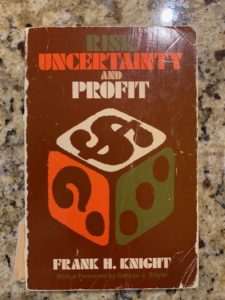Warren is probably right that successful multinational corporations like oil companies do respond to shifts in the economy by finding ways to turn a profit. Because, well, that’s what they have to do to keep being successful multinational companies. There’s hardly anything shadowy or suspicious about that. You can put gas in your car this morning because oil companies are making a profit, whether Warren approves or not.
The price-gouging claim, however, is just wildly off base and smacks of political desperation. For months, Democrats claimed that dumping trillions of dollars into the economy during the COVID-19 pandemic—in the form of direct payments, expanded unemployment benefits, and other spending—would not trigger inflation. Then they claimed inflation was transitory. Months later, it now looks like significant inflation will continue well into next year, so a scapegoat must be found.
But Warren’s claim that oil companies are jacking up prices to turn a bigger profit doesn’t stand up to even the slightest scrutiny.
Alex Pollock celebrates Frank Knight’s great work, Risk, Uncertainty, and Profit – which was published 100 years ago this year.  (DBx: Risk, Uncertainty, and Profit played a major role in both my masters thesis and in my dissertation. I read Risk, Uncertainty, and Profit multiple times, and each time carefully. Each time I learned much. The nearby photo is of my dog-eared copy – obtained new in 1979 – of this truly great book.)
(DBx: Risk, Uncertainty, and Profit played a major role in both my masters thesis and in my dissertation. I read Risk, Uncertainty, and Profit multiple times, and each time carefully. Each time I learned much. The nearby photo is of my dog-eared copy – obtained new in 1979 – of this truly great book.)
Others are more subtle. Did you ever wonder why former media darling and New York Gov. Andrew Cuomo sent Covid patients back to nursing homes instead of to the Javits Center or the USNS Comfort hospital ship, which President Trump had sent? The Cuomo re-election campaign received more than $1 million from the Greater New York Hospital Association in 2018. Mr. Cuomo then increased Medicaid fees paid to nursing homes and hospitals. When the pandemic hit, the same hospital association requested that nursing homes be compelled to accept patients who had tested positive for Covid-19. Then, as deaths mounted, the Cuomo administration underreported the number.
Then he informs us “I have been a libertarian since I was a little boy,” albeit taken aback by some of the more extreme conclusions of the philosophy. He is now an “empirical libertarian.”
As one who actually has been a libertarian since I was a little boy, I hardly would want to chase away a thinker as significant as Mr. DeMuth. But his claim, characteristic of national conservatism, that “the president is not only CEO of the executive bureaucracies but also, and primarily, head of state, responsible for the nation’s success and all of its citizens’ welfare” runs counter to both the “empirical” modifier and the libertarian principle.
George Leef summarizes the ugly reality of Nancy MacLean’s so-called “scholarship.” A slice:
Duke University history professor Nancy MacLean has become famous for her ad hominem attacks on economists who advocated limited government. First she went after James Buchanan, and then most recently, Milton Friedman. Her “scholarship” is not meant to elicit truth but to advance the leftist claim that anyone who argues against their omnipotent government agenda must at heart be an evil person.



